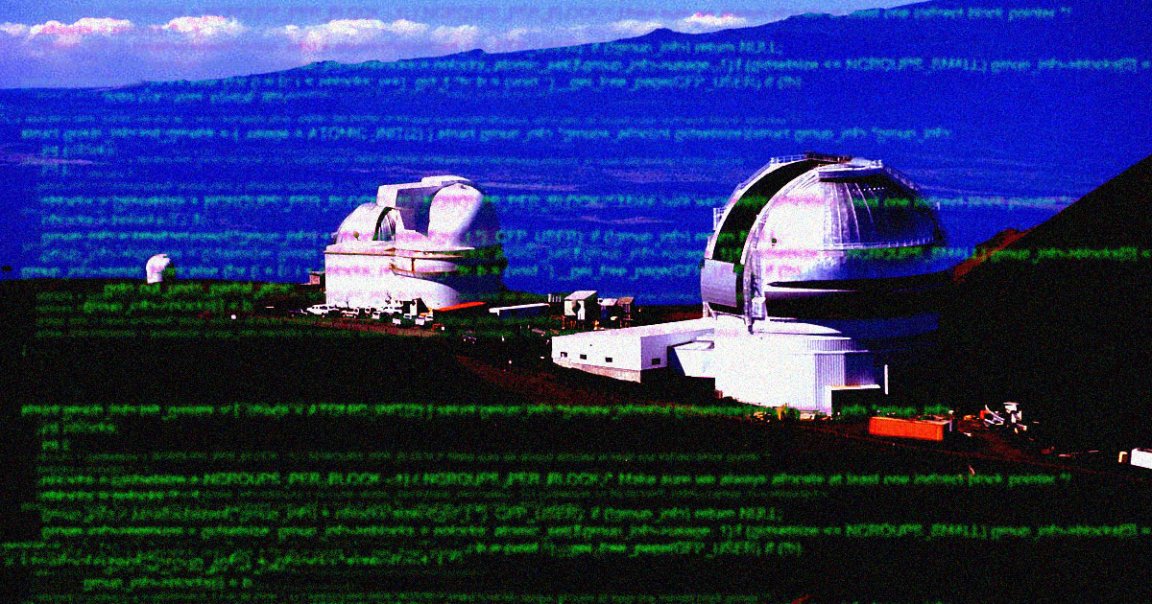
360 No Scope
For at least the last three weeks, hackers have been targeting major telescopes in Hawaii and Chile, forcing scientists to temporarily put ten observatories out of commission. Remote operations have also been shut down at a few others.
It’s a mysterious development that has researchers hunting for answers, Science reports — let alone a motive. Why would somebody intentionally try to shut down astronomical research?
The suspension has already interrupted a number of international projects, including doctoral theses and other papers. Bewildered, researchers are now racing to find ways to tighten up cybersecurity and resume observations.
And for a lot of research, it may already be too late. Many observations are tightly scheduled, leaving researchers with narrow time windows, many of which have already closed.
Cyber Incident
The extent of the fallout is baffling. Earlier this month, NOIRLab, a federally supported research lab, announced that its Gemini North telescope in Hawaii had been shut down as a result of a “cyber incident.” Its twin telescope, Gemini South, followed.
A week later, NOIRLab cut off astronomers from remotely accessing the controls of yet another network of telescopes called the Mid-Scale Observatories in Chile. Eight other telescopes in the country had to suspend operations as well.
Mysteriously, NOIRLab refused to elaborate on the nature of the cyberattack or clarify whether the attackers were asking for a ransom.
NOIRLab has since proposed to send out a team of graduate students to Chile with the hopes of resuming in-person observations.
Digital Fortress
Others questioned whether the hackers even know what they’re doing.
“Quite possibly, the attacker doesn’t even know they are attacking an observatory,” Von Welch, retired lead of the NSF Cybersecurity Center of Excellence, told Science.
It’s an unusual situation for astronomers to find themselves in, as cyberattacks aren’t usually part of their job description. But the incident will likely serve as motivation to batten down the hatches.
“When people are like, ‘Oh, where’s the data?’ Then I’ll have to say, ‘Well, I don’t have any data because a hacker somewhere took down the computer,'” Luis Welbanks, an astronomy postdoc at Arizona State University, who uses ground-based observations to study the atmospheres of exoplanets, told Science. “I don’t know if any hiring committee will be sympathetic to that.”
More on cyberattacks: AI Knows What You’re Typing Just By Hearing It Over a Zoom